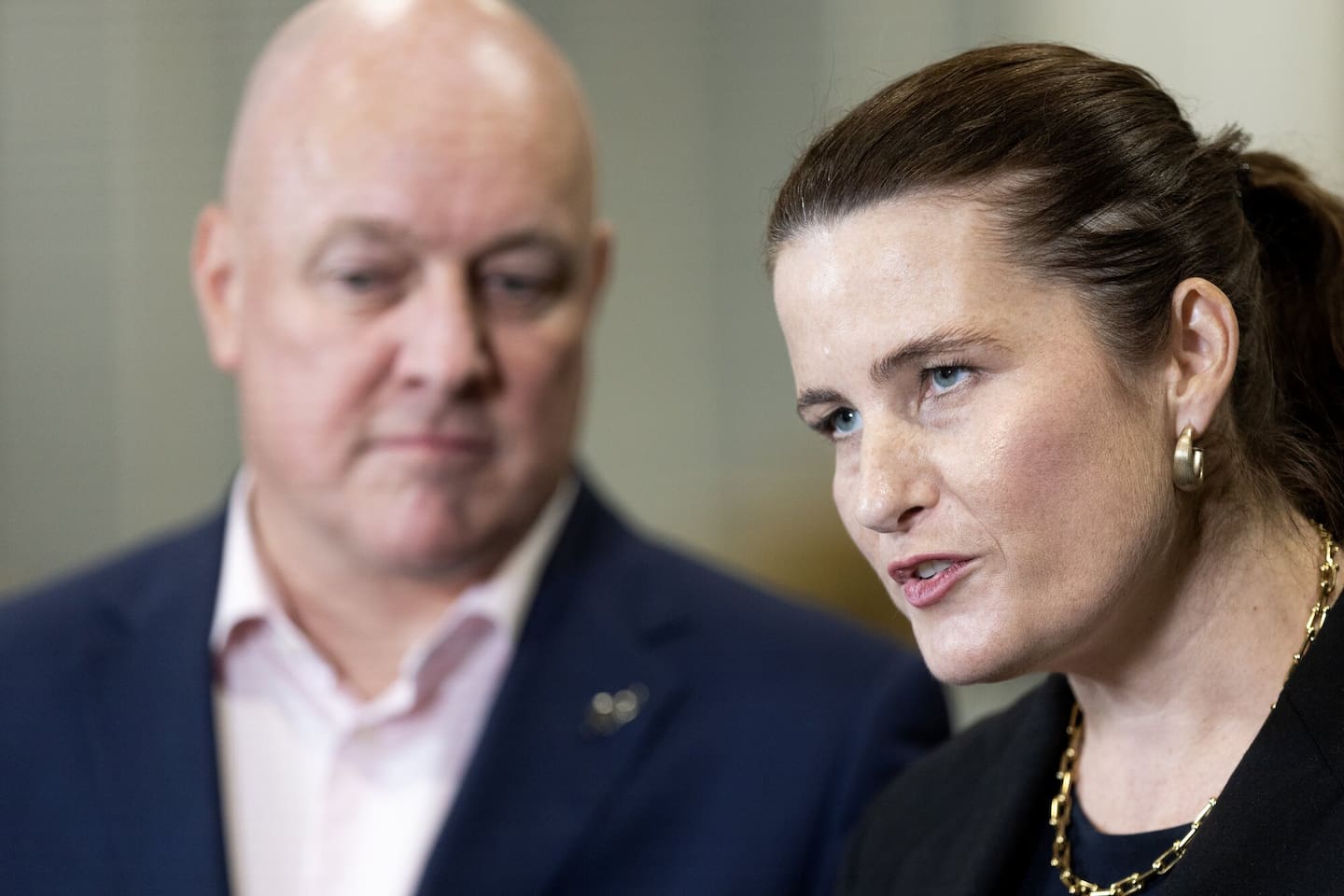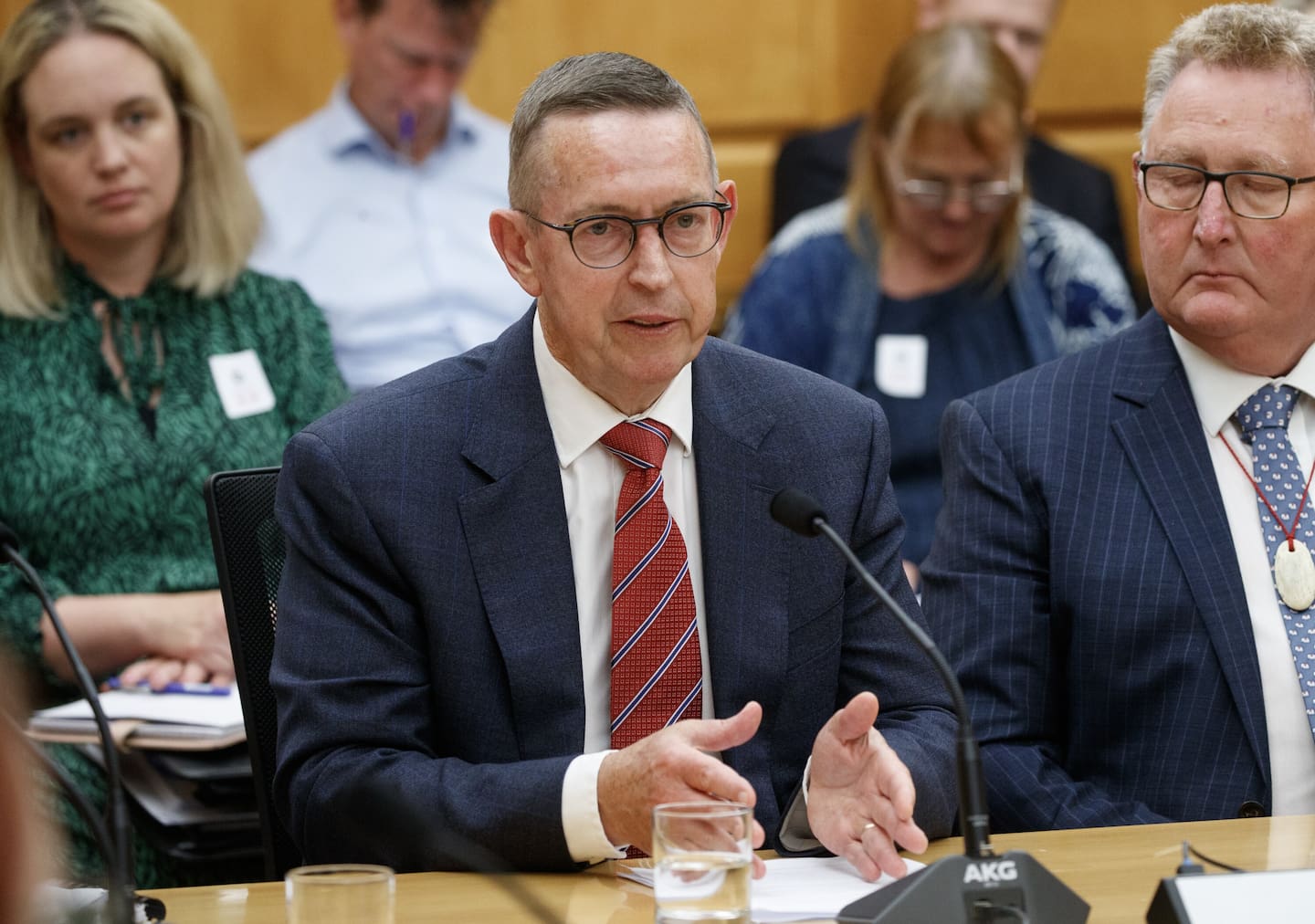The Finance Minister has told the Reserve Bank chairman that his organisation did not appropriately handle how it communicated information relating to the resignation of former governor Adrian Orr more than three months ago.
The chair, Neil Quigley, has now owned up to the bank being “late” in responding to official requests for information and has said it will be looking at how to improve its responses in the future.
After the central bank yesterday released information about the resignation, Nicola Willis provided a statement saying it was her view “that it would have been appropriate for the bank to share that information earlier”.
Speaking to reporters on Thursday morning, Willis elaborated, saying she had made that message clear directly to Quigley.
“I have spoken to their chairperson Neil Quigley and expressed my view they did not manage that Official Information Act request well and I expect them to do better,” the Finance Minister said.
She also said that Quigley had “acknowledged they could have and should have done better”.
Quigley at that point had not acknowledged this publicly.
But in a statement issued a few hours after Willis’ comments, he admitted the bank was “late in producing a response to some of the OIAs we received”
“I regret that this delay occurred,” he said.
“The circumstances and the volume of information associated with the OIAs on Adrian Orr’s resignation were complex, and we needed to be sure that our consideration of relevant information was comprehensive.
“As well as our obligations under the Official Information Act, we needed to take into careful consideration the former Governor’s exit agreement and privacy law. For this reason, we extended consultation on the information and our response, including review by senior external counsel.”
He said he was limited in what he could say on the day Orr resigned “both by the terms of his exit agreement and the fact that we were still working through finalisation of the detail of the next Five-Year Funding Agreement (FYFA)”.
“We were conscious of the need to explain to staff of the RBNZ the potential implications for staffing levels of a lower level of funding and needed time to consider the details of that,” Quigley added.
“We are taking into account the feedback that we have received on our management of these OIA requests and looking carefully at how we can improve our response times in the future.”
The Herald has contacted the Reserve Bank (RBNZ) today for comment from the board’s chairman.
Willis said earlier that agencies must “comply with their statutory obligations” and “wherever possible, are open and transparent with New Zealanders”.
“Of course, they need to balance that against their legal obligations when it comes to employment discussions and agreements, but on this one, I think they could have pulled their socks up.”
It comes after the central bank finally revealed to the public why Orr resigned out of the blue in March, a bombshell decision that was never adequately explained at the time and has led to months of speculation.

Finance Minister Nicola Willis has criticised the bank's handling of the information. Photo / George Heard
Following the resignation, the Herald, like other media outlets and commentators, requested communications and briefings about the decision under the Official Information Act (OIA).
After several delays, the Reserve Bank yesterday provided a summary of those documents, rather than releasing them individually. It decided to withhold information for various reasons – such as privacy and to maintain legal privilege – and didn’t believe the public interest outweighed these grounds.
The statement confirmed Orr resigned as he wanted more funding for the central bank than what the Government was willing to provide.
“Mr Orr and the RBNZ chair, Professor Neil Quigley, attended a meeting with the Minister of Finance and Treasury officials on 24 February. By then it was clear that the board was willing to agree to a considerably lesser amount than the amount Mr Orr thought was the minimum necessary,” the RBNZ said in its summary.
This, according to the bank, led to Orr deciding “he had achieved all he could as Governor of the Reserve Bank and could not continue in that role with significantly less funding than he thought was viable for the organisation”.
“Mr Orr and Professor Quigley entered discussions which led to Mr Orr’s decision to resign. The matter was distressing for Mr Orr. Both parties engaged senior counsel to negotiate an appropriate exit agreement. In the circumstances, an immediate departure and special leave for Mr Orr was appropriate, although he agreed to provide handover support.”
Willis said in her statement yesterday that she became aware on February 27 that employment discussions had begun. She was not involved as it was an employment matter between Orr and the bank.
“While I have always been able to speculate that Mr Orr’s views on funding may have contributed to his resignation, I did not view it as proper for me to speculate on that matter when I was not a party to the employment discussions that led to his resignation.”

Reserve Bank chairman Neil Quigley has always described it as a "personal" decision by Orr. Photo / Mark Mitchell
The Herald asked Quigley on the day Orr resigned whether any disagreement over funding had contributed to the then governor’s decision to quit.
Quigley did not confirm that, instead saying the bank was working through “some views” about funding and finalising its submission to the minister.
“That conversation about funding has involved the normal challenge that you would expect and has been constructive, so the board is managing that process,” he said.
In the aftermath of the resignation, the Reserve Bank began internally trying to keep staff on message, emphasising that Orr’s decision to resign was “personal”.
The documents released primarily relate to an extensive communications plan about the resignation. The situation was codenamed “Project Baroda”.
A series of answers to different questions were produced in case staff were asked about the resignation. None of the answers were upfront about what led to Orr’s resignation.
The matter of funding had been bubbling away for a while. In September last year, the RBNZ bid for more than $1 billion of government funding for the five years to 2030. Treasury advised Willis the proposal didn’t provide good value for money.
In mid-February, Orr wrote to the board to explain why he believed it should push for the funding it believed it needed.
The meeting referenced in the Reserve Bank’s summary occurred on February 24. The Herald previously revealed Willis told a press secretary not to discuss with reporters the nature of that meeting.
On February 27, Willis became aware of the employment discussions.
The Herald also published an article about the minister suggesting to the bank it may need to trim its expectations around funding.
Orr resigned on March 5. Nine days later, the RBNZ submitted a more modest bid for $786 million of funding.
Then in mid-April, Willis confirmed the RBNZ’s five-year funding package would total nearly $776m – 8% more than the funding it received in the five years to 2025.
Willis reappointed Quigley chair mid-last year. This was despite the fact the Reserve Bank board recommended Orr be reappointed governor – a move Willis opposed when in Opposition.
Take your Radio, Podcasts and Music with you
Get the iHeart App
Get more of the radio, music and podcasts you love with the FREE iHeartRadio app. Scan the QR code to download now.
Download from the app stores
Stream unlimited music, thousands of radio stations and podcasts all in one app. iHeartRadio is easy to use and all FREE









